Application Note
Application Note
The world of medicine has changed dramatically in recent decades. More and more life-saving drugs are no longer produced by traditional chemical synthesis, but with the help of living organisms – a field known as biopharmaceutics. With the help of microorganisms or cell cultures, highly complex proteins and other biopharmaceuticals can be produced that would otherwise be impossible or very difficult to produce. Today, this biotechnology provides us with insulin for diabetics, antibody therapies against cancer, vaccines against infectious diseases and many other life-improving drugs.
The upstream process: where it all begins
The so-called upstream process forms the foundation of biopharmaceutical production. This is where the cells that will later produce the desired proteins are cultivated. From the initial cell bank through various propagation stages to the production bioreactor – each step in the upstream process requires precise control of all parameters in order to achieve optimal results.
Single-use bioreactors and mixers are increasingly being used in this complex process and are becoming more and more important compared to conventional plant technology. They not only promise shorter set-up times, but also save considerable costs in the areas of cleaning and validation.
The cost-effectiveness of single-use systems may seem contradictory at first glance – how can a disposable product be more cost-effective than a reusable system? The answer lies in the hidden costs:
Cleaning costs: conventional stainless steel bioreactors require elaborate CIP/SIP (clean-in-place/sterilizein- place) processes that incure high costs for water, detergents, steam and energy.
Cross-contamination: Single use eliminates the risk of cross-contamination between different production batches.
Flexibility: Changeover to other products is quicker and without time-consuming cleaning cycles.
The initial investment for single-use systems is significantly lower than for comparable stainless steel systems.
The products manufactured in these bioprocesses are indispensable components of modern therapeutic approaches. A selection:
Monoclonal antibodies: These customized proteins can bind specifically to pathogens or cancer cells and mark or destroy them. Examples include trastuzumab (Herceptin®) against breast cancer or adalimumab (Humira®) against autoimmune diseases.
Recombinant proteins: For example, insulin for diabetics, which is now produced using genetically modified bacteria or yeast cells.
Vaccines: Modern vaccines, including mRNA technologies, are often produced by bioprocesses.
Gene therapeutics: Treatments that replace or repair defective genes to cure genetic diseases.
Cell therapies: Such as CAR-T cell therapies, in which a patient's immune cells are reprogrammed to fight cancer cells.
Several process parameters must be strictly monitored and controlled to ensure optimal cell growth and maximize the production of the desired proteins. Temperature is one of the most crucial parameters – even small deviations can have dramatic effects:
Temperatures that are too high can denature proteins and render them ineffective.
Temperatures that are too low slow down cell growth and productivity.
Temperature fluctuations affect the quality and consistency of the end product.
In the worst case, temperature deviations can lead to a complete batch loss – which can result in millions of euros of damage to high-quality biopharmaceuticals.
For the preparation of process solutions or subsequent cultivation in single-use mixers and bioreactors, LAUDA's Variocool and Ultratemp are two device lines that have been designed precisely for these applications and have already proven themselves many times over. Both device lines are characterized by high product quality and a very broad performance spectrum.
There are seven performance classes available, some in water-cooled and others in air-cooled design, which cover a heating and cooling capacity of 1 kW to 50 kW. The different performance classes can be selected and used accordingly for the respective single-use bioreactors and mixers from 50 liters up to 5,000 liters or larger in order to always achieve the right ratio of performance and liquid volume, which brings advantages in the process flow of a seed train.
For larger batches or recurring production cycles, LAUDA offers other portfolio devices such as the Integral T process thermostat or plant engineering solutions. See also the application reports ›Temperature control of a half-pipe coil reactor‹ or ›High-precision temperature control of pharmaceutical containers‹.
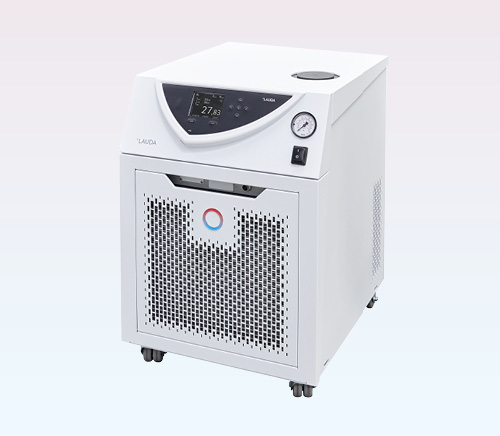
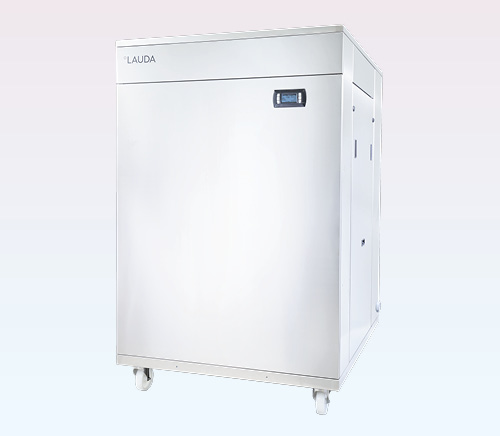
LAUDA process thermostats are crucial for the success of bioprocesses:
LAUDA Variocool and Ultratemp ensure precise thermal management and, with a temperature stability of up to 0.05 K (depending on the performance class), also meet demanding process requirements.
Temperature control systems for single-use applications
LAUDA Variocool and Ultratemp are key components for the successful use of single-use bioreactors and mixers in the biopharmaceutical industry. With their flexibility and reliability, they support the industry's requirements for modular and scalable production methods – helping to bring life-changing therapies to the patients who urgently need them.
The following variants are available:
Variocool VC 1200/2000/5000 (W)
Variocool VC 10000 (W)
Ultratemp UT 2505/3505/5005 W
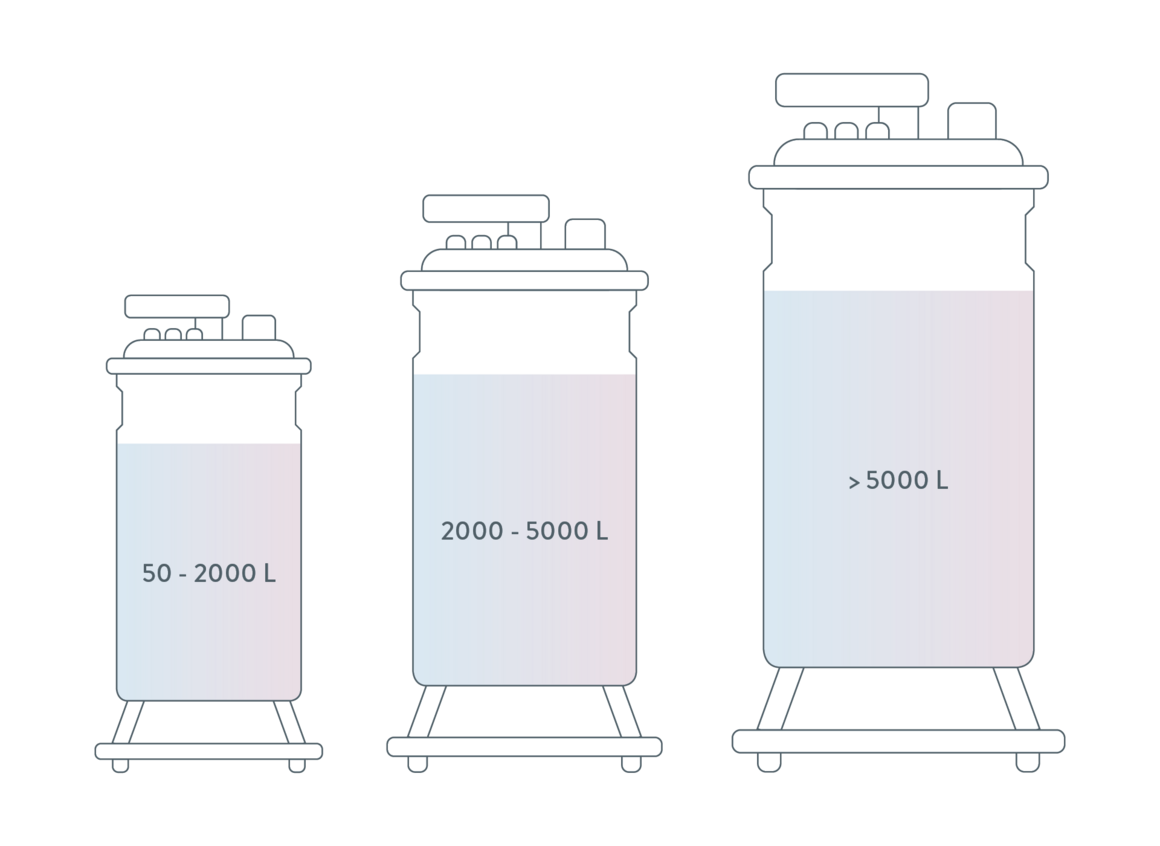
Flexibility: Adaptable to various single-use systems and process requirements of leading manufacturers such as C ytiva, Sartorius, Thermo Fisher Scientific, Tofflon or Merck Millipore.
Precision: Highly accurate temperature control for optimum process results.
Efficiency: Fast temperature changes and energy-efficient operation.
Reliability: Robust design for continuous operation in regulated environments.
Connectivity: Easy integration into modern process control systems through a variety of available process interfaces.
In a world where biopharmaceuticals are becoming increasingly important, precision in every production step is crucial. LAUDA temperature control units make a significant contribution to the production of life-saving drugs by providing the precise temperature control that is essential for the growth and productivity of cell cultures.
At LAUDA, we understand that our temperature control units are far more than high-tech products – they are key components in a value chain that culminates in improving and saving human lives.
When a child with a rare genetic disease receives a life-saving gene therapy, when a cancer patient responds to an innovative antibody therapy or when millions of people are protected by a vaccine – there is a piece of LAUDA technology in this success.
This is the core of our mission: with precise temperatures, we enable excellence in the biopharmaceutical industry and thus contribute to a healthier future for us all.
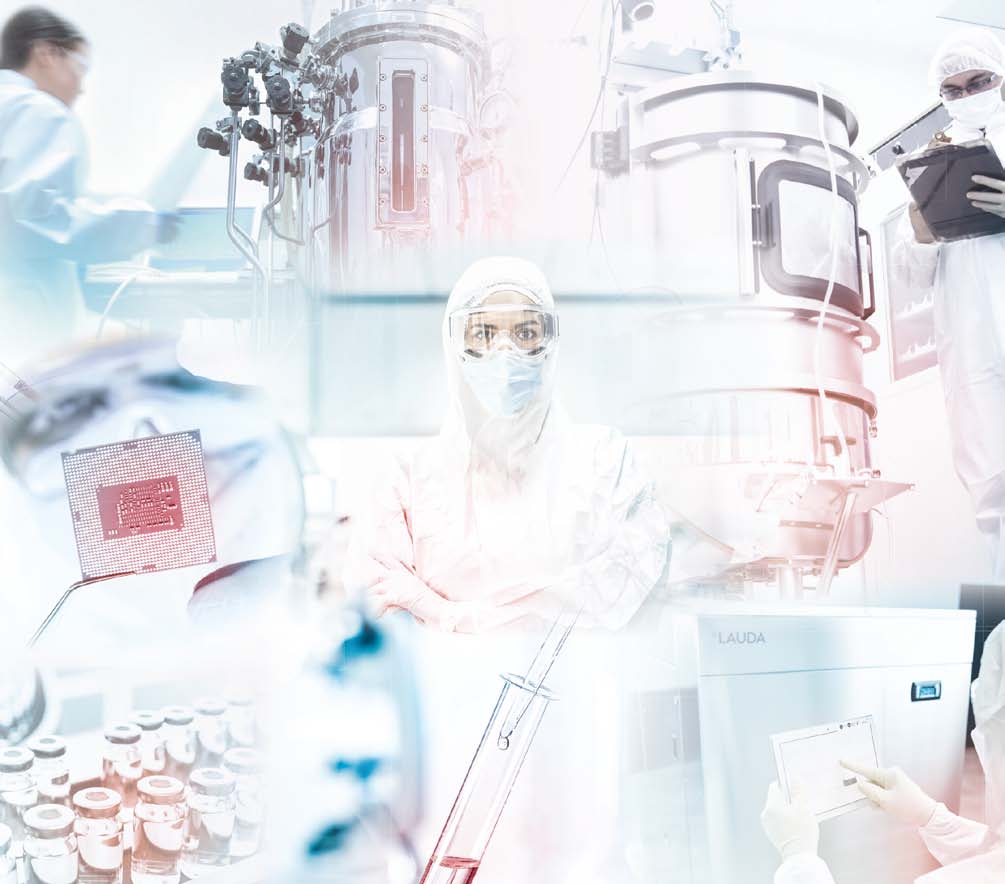
Learn how our solutions can make your processes more efficient
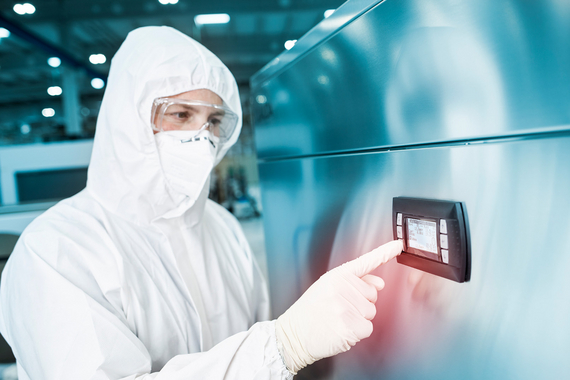
High-performance and versatile. A comprehensive performance spectrum enables the LAUDA Variocool to deal with sophisticated process temperature control in the moderate temperature range. Equipment incorporating various pumps and individual expansion with interface modules, including the option of external temperature control, allow optimized adaptation to changing requirements in the process environment.
The new Ultratemp process thermostats round off the LAUDA portfolio in the upper performance range of biotech and industrial applications. The Ultratemp portfolio includes three models of constant temperature equipment with high heating and cooling capacities, especially for bioreactor applications with reactor volumes from 2000 to 5000 liters. For volumes over 5000 liters, LAUDA Plant Engineering offers even more powerful, customer-specific temperature control systems.
Find the right device for your application
There are already three products on your comparison list.
To compare other products, please delete one of the products on your comparison list.